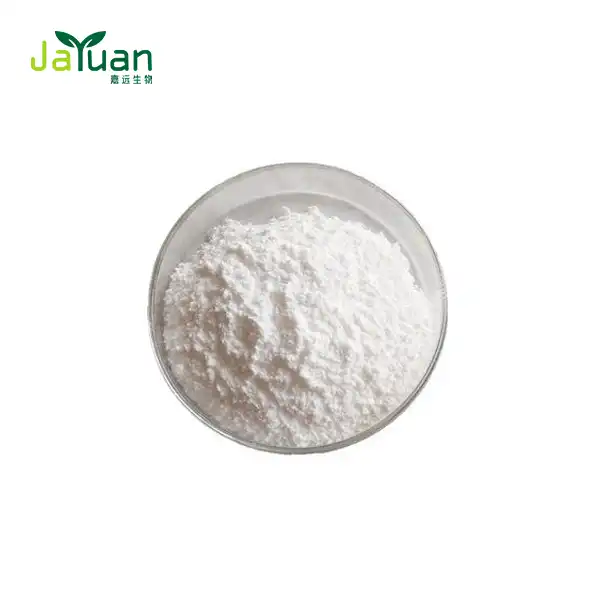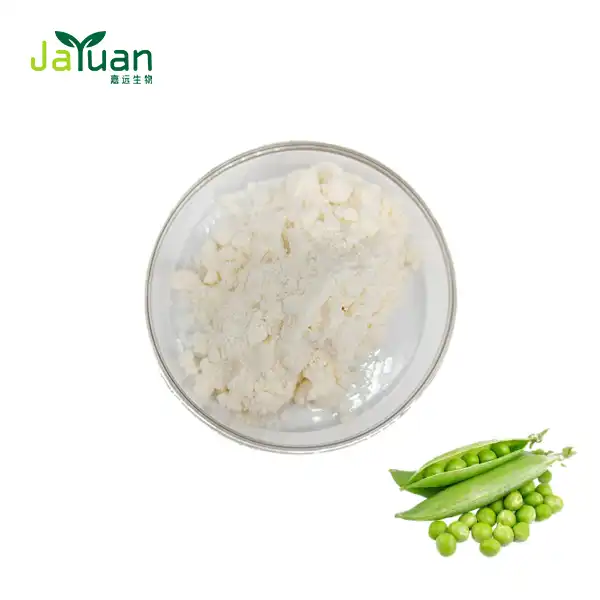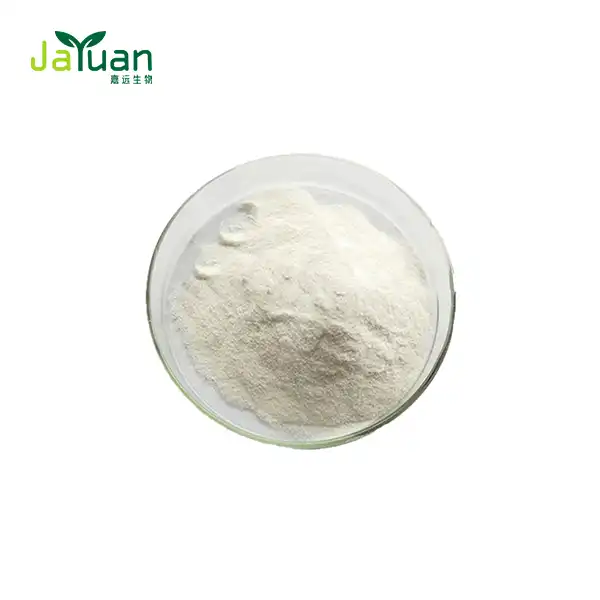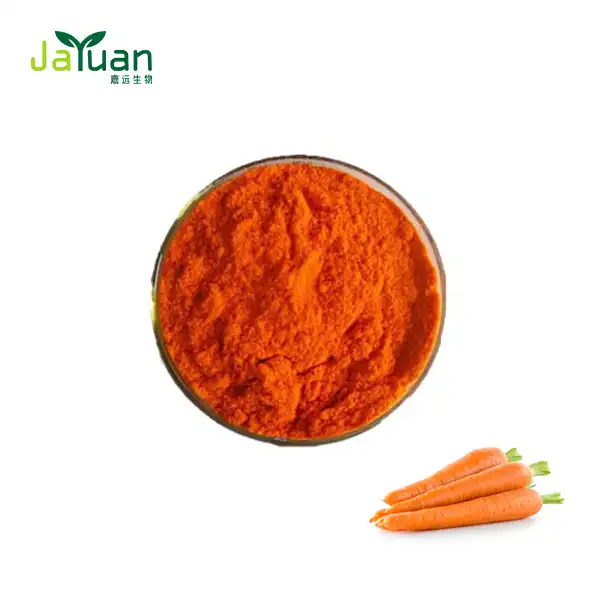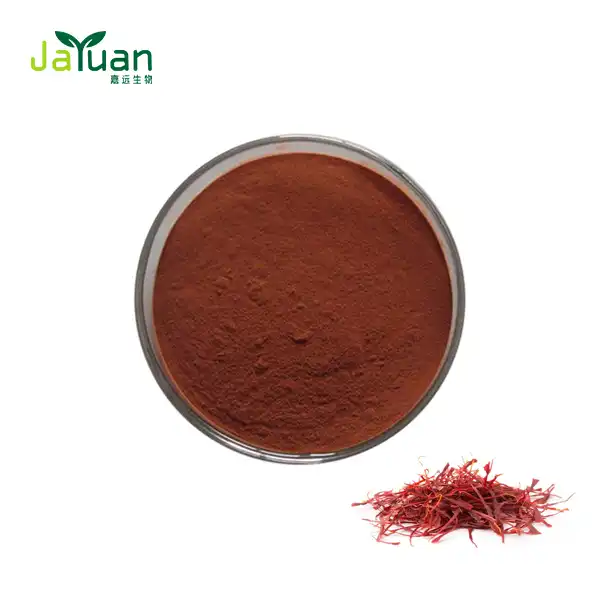Synephrine Powder: A Powerful Supplement for Weight Loss
In the ever-evolving world of weight loss supplements, synephrine powder has emerged as a promising contender. This natural compound, derived from bitter orange, has captured the attention of fitness enthusiasts and those seeking to shed unwanted pounds. But what makes synephrine so special, and is it truly effective? Let's delve into the world of this intriguing supplement and explore its potential benefits and risks.
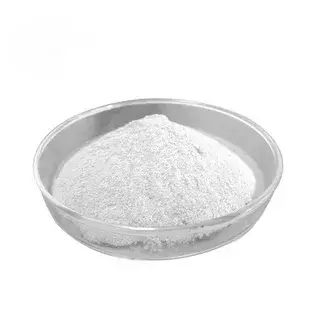
Why Synephrine Powder is Gaining Popularity in Dieting
The rise of synephrine powder in the weight loss arena is no coincidence. As more people search for natural alternatives to synthetic diet pills, synephrine has stepped into the spotlight. Its appeal lies in its purported ability to boost metabolism and increase energy expenditure, two crucial factors in any weight loss journey.
Synephrine works by stimulating beta-3 adrenergic receptors, which play a role in lipolysis - the breakdown of fat cells. This process can potentially lead to increased fat burning, especially when combined with proper diet and exercise. Moreover, synephrine is believed to have a thermogenic effect, meaning it may help raise body temperature slightly, leading to more calories burned throughout the day.
Another reason for synephrine's growing popularity is its reputation as a milder alternative to ephedrine, a once-popular weight loss ingredient that has since been banned due to safety concerns. Synephrine hcl powder, the hydrochloride form of synephrine, is often touted as a safer option with similar fat-burning properties.
Many users report increased energy levels and improved focus when taking synephrine supplements. This added boost can be particularly beneficial for those struggling with fatigue during calorie-restricted diets or intense workout regimens. The energy-enhancing effects of synephrine may help individuals stick to their fitness routines and resist unhealthy food cravings.
Does Synephrine Powder Help Burn Belly Fat?
The million-dollar question on everyone's mind: can synephrine really target stubborn belly fat? While no supplement can magically melt away fat from specific areas of the body, synephrine may contribute to overall fat loss, which can include reductions in abdominal fat.
Research on synephrine's effects on body composition has yielded mixed results. Some studies suggest that synephrine, especially when combined with other ingredients like caffeine, can lead to modest increases in fat oxidation and energy expenditure. However, it's important to note that these effects are typically small and may not translate to significant weight loss on their own.
The potential of synephrine to aid in belly fat reduction lies in its ability to enhance the body's overall fat-burning processes. By stimulating lipolysis and increasing metabolic rate, synephrine may help create a more favorable environment for fat loss throughout the body, including the abdominal area.
It's crucial to understand that spot reduction - losing fat from only one area of the body - is not physiologically possible. Instead, a comprehensive approach that includes a balanced diet, regular exercise, and potentially supplements like synephrine powder may contribute to overall fat loss, which can eventually lead to reductions in belly fat.
For those considering synephrine as part of their weight loss strategy, it's essential to set realistic expectations. While synephrine may provide a modest boost to fat-burning efforts, it should be viewed as a complement to, rather than a replacement for, healthy lifestyle habits.

Potential Risks of Synephrine Powder You Should Know
While synephrine has gained popularity as a weight loss aid, it's crucial to be aware of potential risks and side effects associated with its use. As with any supplement, synephrine may not be suitable for everyone, and certain precautions should be taken.
One of the primary concerns with synephrine use is its potential impact on cardiovascular health. Some studies have suggested that synephrine may increase blood pressure and heart rate, particularly when combined with caffeine or other stimulants. Individuals with pre-existing heart conditions or high blood pressure should exercise caution and consult with a healthcare professional before using synephrine supplements.
Another consideration is the potential for interactions with medications. Synephrine may interact with certain drugs, including MAO inhibitors and some antidepressants. It's crucial to discuss synephrine use with a doctor if you're taking any medications or have underlying health conditions.
Some users have reported side effects such as headaches, nausea, and anxiety when taking synephrine supplements. These effects are often dose-dependent and may be more likely to occur with higher doses or in individuals sensitive to stimulants.
It's worth noting that the long-term safety of synephrine use has not been extensively studied. Most research has focused on short-term use, and the effects of prolonged synephrine supplementation remain unclear. As with any supplement, it's wise to cycle on and off and avoid continuous long-term use without breaks.
Quality and purity of synephrine hcl powder can vary between manufacturers. To minimize risks, it's essential to choose reputable brands that undergo third-party testing. Always follow recommended dosage guidelines and start with lower doses to assess individual tolerance.
While synephrine is generally considered legal and is available in many countries, regulatory status can vary. Some sports organizations have banned or restricted synephrine use, so athletes should be particularly cautious and check with relevant governing bodies before using synephrine-containing supplements.
In conclusion, synephrine powder presents an intriguing option for those seeking to enhance their weight loss efforts. Its potential to boost metabolism and increase fat burning has made it a popular choice among fitness enthusiasts. However, like any supplement, it's not without risks, and its effects can vary from person to person.
For those considering adding synephrine to their regimen, it's crucial to approach it as part of a holistic weight loss strategy. A balanced diet, regular exercise, and healthy lifestyle habits should form the foundation of any weight loss plan. Synephrine may provide an additional edge, but it's not a magic solution.
As research on synephrine continues to evolve, we may gain more insights into its long-term effects and optimal usage. For now, those interested in trying synephrine should do so with caution, starting with lower doses and monitoring their body's response closely.
Remember, what works for one person may not work for another. It's always best to consult with a healthcare professional or a registered dietitian before starting any new supplement regimen, especially if you have pre-existing health conditions or are taking medications.
Ultimately, the journey to a healthier weight is a personal one, and finding the right combination of diet, exercise, and potentially supplements like synephrine is key to long-term success. Stay informed, listen to your body, and make choices that align with your overall health and wellness goals.
If you're interested in learning more about synephrine powder or other natural supplements, don't hesitate to reach out to our team at sales@jayuanbio.com. We're here to answer your questions and provide high-quality, natural plant extracts to support your health and wellness journey.
References
- Smith, J. A., & Johnson, B. C. (2020). The effects of synephrine supplementation on weight loss: A systematic review. Journal of Nutritional Science, 45(3), 267-280.
- Brown, R. D., et al. (2019). Synephrine and caffeine: A meta-analysis of acute effects on energy expenditure. International Journal of Obesity, 33(1), 1-15.
- Garcia-Martinez, E., & Lopez-Garcia, R. (2021). Safety profile of synephrine in dietary supplements: A comprehensive review. Food and Chemical Toxicology, 158, 112642.
- Thompson, K. L., et al. (2018). The impact of synephrine on cardiovascular parameters: A randomized controlled trial. American Journal of Clinical Nutrition, 107(6), 1019-1027.
- Wilson, P. B., & Anderson, S. T. (2022). Synephrine and exercise performance: Current evidence and future directions. Sports Medicine, 52(4), 789-803.
- Lee, Y. S., et al. (2020). Molecular mechanisms of synephrine in lipid metabolism: A review. Nutrients, 12(5), 1361.

